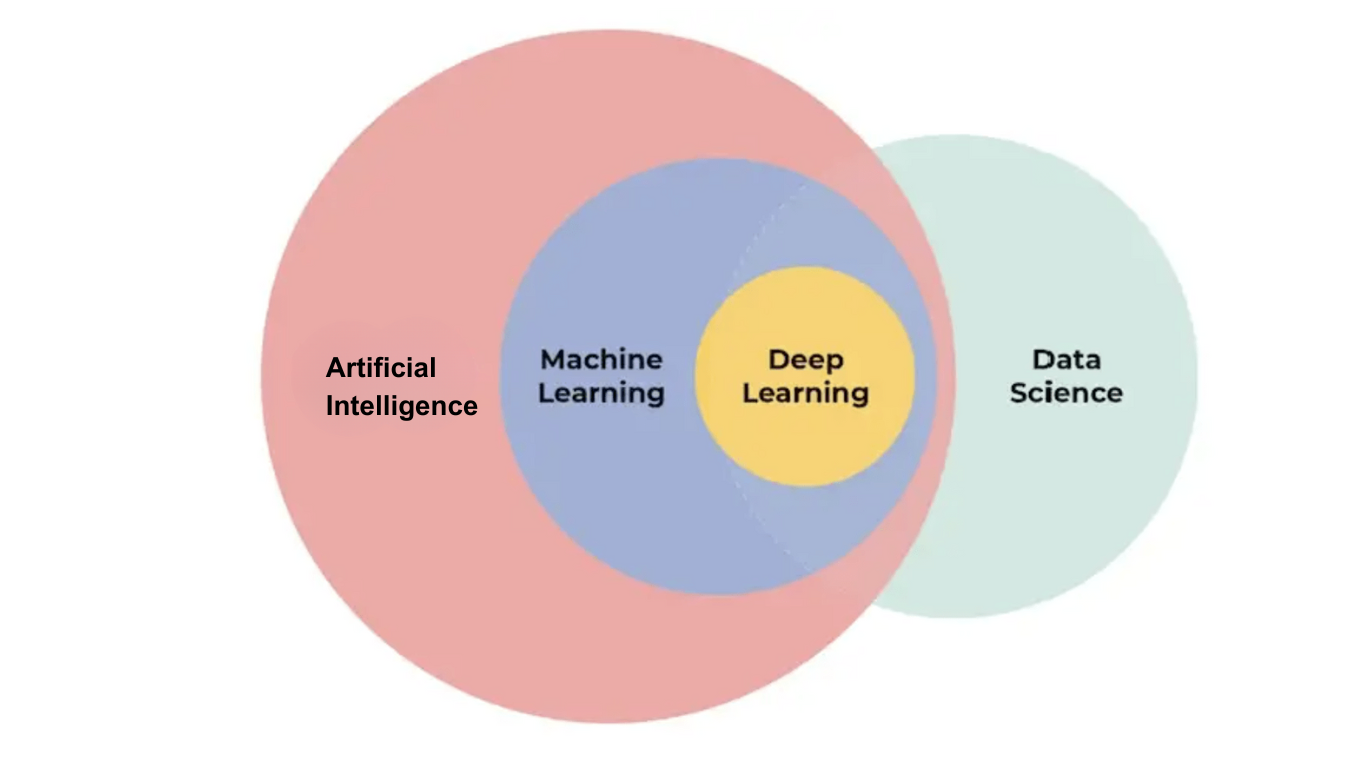Data science metholdogies and how they can help your organisation
In today's interconnected world, the surge of big data and data analytics is revolutionising how businesses operate. With the abundance of digital information from various sources like social media and online transactions, organisations now have unprecedented opportunities to gain valuable insights for better decision-making, customer experiences, and operational efficiency. This shift represents a significant advancement in leveraging data to drive innovation and competitiveness across industries.
In this blog, we'll delve into the key features of and methodologies within data science, their importance in today's world, and actionable advice on how to initiate your organisation’s journey into the realm of data science.
Exploring data science methodologies:
Data science encompasses a diverse range of methods, each tailored to specific goals and data characteristics. Methodologies include:
- Descriptive analysis: Descriptive analysis summarises and visualises data to gain insight into historical trends and patterns. Techniques such as data visualisation, summary statistics, and exploratory data analysis are often used in this phase.
- Predictive Analytics: Predictive analytics uses statistical models and machine learning algorithms to predict future outcomes based on historical data. Regression analysis, time series forecasting, and classification algorithms are commonly used to make predictions and identify trends.
- Prescriptive Analytics: Prescriptive analytics goes beyond prediction and provides recommendations for optimal decision-making. Optimisation techniques, simulation models and decision trees are used to prescribe actionable strategies based on predictive insights.
- Machine learning: Machine learning involves training algorithms to learn from data and make predictions or decisions without explicit programming. Supervised learning, unsupervised learning, and reinforcement learning are key branches of machine learning, each with its own set of algorithms and techniques.
- Deep Learning: Deep learning is a subset of machine learning that uses multi-layer artificial neural networks to perform complex tasks such as image recognition, natural language processing, and speech recognition. Deep learning models excel at capturing complex patterns and representations in data.
These methodologies can be applied individually or in combination, depending on the goals of the analysis and the characteristics of the data being analysed.
If you believe your organisation could benefit from implementing one or a combination of these methodologies, don't hesitate to reach out to learn about Eiqsaure's capabilities and how we can support you in achieving your goals.
How data science and AI are related:
Although they represent different aspects of the larger field of computer science, data science and artificial intelligence (AI) are closely related disciplines with common goals and methodologies. To understand how data science and AI work together to build intelligent systems, it is crucial to understand how they both utilise and leverage data.
Here are some ways they are interconnected:
Data as the foundation: Both areas rely primarily on data as a starting point. The main goal of data science is to extract knowledge and insights from data using methods such as statistical analysis and machine learning. AI, on the other hand, uses data to train intelligent systems to perform operations such as pattern recognition, judgment, and natural language understanding that would normally require human intelligence.
Machine Learning: Machine learning serves as a bridge between data science and AI. It is fundamental to both areas and serves as the basis for a variety of AI applications. Machine learning algorithms are used in data science for data analysis, pattern recognition and prediction. AI uses machine learning algorithms to train models that enable intelligent systems to learn from data and perform tasks independently.
Data science enables AI: Data science provides the tools, techniques, and methods for collecting, processing, and analysing data that are essential for training AI models. Data scientists use techniques such as data cleaning, feature engineering, and model evaluation to prepare data for training machine learning models. Without high-quality data and effective data science practices, AI models may not perform optimally or produce biased or inaccurate results.
AI improves data science: AI technologies such as natural language processing (NLP), computer vision and deep learning, expand the capabilities of the data science by enabling more complex analysis of unstructured data types such as text, images and audio. These AI techniques extract valuable insights from various data sources that may be difficult to analyse using traditional statistical methods alone.
Iterative Processes: Data science and AI often involve an iterative process of experimentation, model building, and refinement. Data scientists and AI engineers work together to develop and refine machine learning models, leveraging insights from data analysis to improve model performance and accuracy. This iterative process enables continuous improvement and adaptation to changing data and business needs.
Common goals: Despite their differences, data science and AI share common goals of gaining insights from data, solving complex problems, and driving innovation. Both disciplines aim to use data to make informed decisions, automate tasks and create intelligent systems that improve efficiency and productivity.
Understanding how data science and AI are connected can enable your organisation to effectively utilise both disciplines as it will empower to fully leverage the capabilities of data and develop innovative solutions suited to the demands of today's digital landscape.
How important is data science for your organisation?
In an era defined by the deluge of data, the significance of data science pervades every aspect of contemporary life, offering a pathway to uncovering hidden patterns, predicting future trends, and fostering meaningful advancements across industries.
- Data-driven decision making: In an increasingly complex and interconnected world, data science enables organisations to make data-driven decisions based on evidence rather than intuition or guesswork. By analysing large volumes of data, organisations can identify opportunities, optimise processes, and gain a competitive advantage in the marketplace.
- Innovation and discovery: Data science drives innovation and discovery by uncovering new insights and patterns in data that were previously unknown. From scientific research to product development, it accelerates innovation by giving researchers and innovators the tools and techniques to explore massive datasets and make discoveries.
- Customisation and Personalisation: It powers tailored recommendations and customised experiences across a variety of industries, such as e-commerce, entertainment, and healthcare. It creates opportunities for customised products, services, and content to each user's needs and preferences through the analysis of user preferences, behaviour, and demographics.
- Forecasting: By utilising statistical models and historical data, data science helps organisations forecast and predict future trends and outcomes. Predictive analytics support strategic decision making and resource allocation, helping business anticipate customer demand, optimise inventory, and mitigate risk.
- Social impact and policymaking: Data science has the potential to create positive social impact by influencing policy decisions, addressing public challenges, and promoting equity and inclusion. By analysing social, economic, and demographic data, policymakers can identify areas of need, allocate resources effectively and develop targeted interventions to address pressing issues such as poverty, inequality and public health.
Getting started
Getting your organisation started with data science can be a daunting task, but here are some tips to help you get started:
- Define Clear Objectives: Begin by clearly defining your organisation's objectives and goals for implementing data science. Identify specific problems or challenges you want to address with data-driven insights.
- Build Data Literacy: Ensure that your team members have a basic understanding of data science concepts and techniques. Offer training programs or workshops to improve data literacy across the organisation.
- Start Small: Begin with pilot projects or small-scale initiatives to demonstrate the value of data science to key stakeholders. Focus on quick wins that address immediate business needs and provide tangible results.
- Invest in Technology: Invest in the necessary technology infrastructure and tools to support your data science initiatives. This may include data storage and processing systems, analytics platforms, and visualisation tools.
- Data Quality and Governance: Prioritise data quality and establish clear data governance processes to ensure that the data being used for analysis is accurate, reliable, and secure.
- Collaborate Across Departments: Foster collaboration between different departments within the organisation, including IT, marketing, finance, and operations. Data science initiatives often require input and expertise from multiple disciplines.
- Hire the Right Talent: Invest in hiring data science talent with the necessary skills and expertise to drive your initiatives forward. This may include data consultants, scientists, analysts, engineers, and domain experts.
If you’re looking to kickstart your organisation's journey into data science, we're here to help you navigate the process and get started effectively. Get in touch to learn how we can support.
- Iterate and Learn: Data science is an iterative process, so be prepared to learn from your experiences and iterate on your approaches. Encourage a culture of experimentation and continuous improvement within the organisation.
- Communicate Results: Communicate the results and insights generated from data science initiatives effectively to key stakeholders across the organisation. Use visualisations and storytelling techniques to make complex concepts more accessible.
- Stay Flexible and Agile: Finally, remain flexible and agile in your approach to data science. The field is constantly evolving, so be prepared to adapt your strategies and techniques as new technologies and methodologies emerge.



